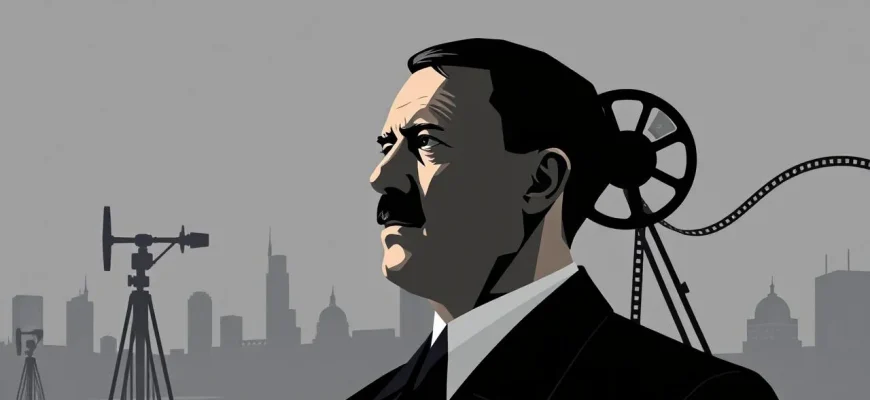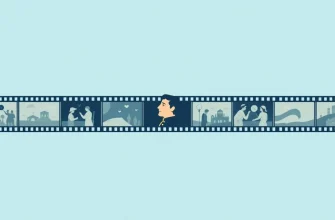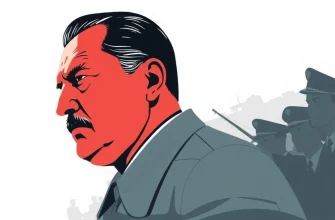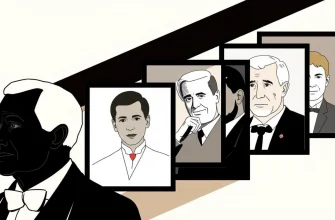The life of Adolf Hitler has been a subject of fascination and horror for filmmakers, providing a rich canvas to explore themes of power, manipulation, and the dark side of human nature. This curated list of 10 biopics delves into various aspects of Hitler's life, from his rise to power to his downfall, offering viewers not just historical insights but also psychological and moral reflections. These films, available with English dubbing or subtitles, provide a comprehensive look at one of the most infamous figures in history, making them invaluable for anyone interested in understanding the complexities of the 20th century.

Conspiracy (2001)
Description: This film recreates the Wannsee Conference where the "Final Solution" was planned. It's included for its depiction of the bureaucratic side of Hitler's regime, showing how decisions were made.
Fact: The film was shot in the actual villa where the conference took place, adding authenticity to the setting.
 Watch Now
Watch Now 
Max (2002)
Description: This film imagines a fictional friendship between a Jewish art dealer and a young Adolf Hitler, exploring the roots of his anti-Semitism. It's included for its speculative take on Hitler's early influences.
Fact: John Cusack, who played the art dealer, was initially hesitant to take the role due to its controversial nature.
 Watch Now
Watch Now 
Downfall (2004)
Description: This film focuses on the last days of Hitler in his Berlin bunker, offering an intimate look at his final moments. It's included for its detailed portrayal of Hitler's mental state and the chaos of the Third Reich's collapse.
Fact: The film was controversial for its humanization of Hitler, leading to debates about the ethics of portraying historical villains. The scene where Hitler rants about the betrayal of his generals became an internet meme.
 Watch Now
Watch Now 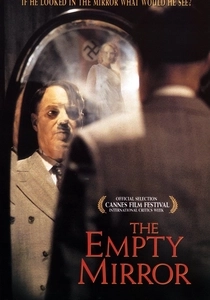
The Empty Mirror (1996)
Description: A surreal exploration of Hitler's psyche, this film imagines him in a dreamlike state, reflecting on his life. It's included for its experimental approach to understanding Hitler's inner world.
Fact: The film features a unique narrative where Hitler converses with historical figures like Eva Braun and Joseph Goebbels, portrayed as figments of his imagination.
 Watch Now
Watch Now 
The Man Who Captured Eichmann (1996)
Description: While not directly about Hitler, this film deals with the aftermath of his regime, focusing on the capture of Adolf Eichmann. It's included for its connection to the broader historical context of Hitler's legacy.
Fact: Robert Duvall played Eichmann, and the film was shot in Argentina, where Eichmann was captured.
 Watch Now
Watch Now 
The Bunker (1981)
Description: Another film centered on Hitler's last days, this one provides a different perspective through the eyes of his inner circle. It's notable for its focus on the psychological breakdown of Hitler and his staff.
Fact: Anthony Hopkins, who played Hitler, was nominated for a Golden Globe for his performance. The film was based on a play by John H. Toland.
 30 Days Free
30 Days Free 
Hitler: The Rise of Evil (2003)
Description: This miniseries traces Hitler's life from his youth to his rise to power, offering a broad view of his early influences and political maneuvers. It's included for its comprehensive narrative of Hitler's ascent.
Fact: The film was shot in Prague to replicate 1920s and 1930s Germany. Robert Carlyle, who played Hitler, received widespread acclaim for his portrayal.
 30 Days Free
30 Days Free 
The Young Hitler (1962)
Description: A lesser-known film that explores Hitler's early life, focusing on his artistic aspirations and personal struggles. It's included for its unique angle on Hitler's formative years.
Fact: The film was made in West Germany and was one of the first to delve into Hitler's youth, offering a psychological perspective on his development.
 30 Days Free
30 Days Free 
The Last Ten Days (1955)
Description: This film covers the final days of Hitler's life, similar to "Downfall," but with a different narrative approach. It's included for its historical significance as one of the earliest cinematic portrayals of Hitler's end.
Fact: The film was directed by G.W. Pabst, who had previously worked with Marlene Dietrich. It was banned in West Germany due to its depiction of Hitler.
 30 Days Free
30 Days Free 
The Führer Gives a City to the Jews (1973)
Description: This film, set in the Theresienstadt ghetto, examines the propaganda efforts of the Nazis through the eyes of a Jewish actor. It's included for its portrayal of Hitler's manipulation of public perception.
Fact: The film was based on real events where the Nazis staged a "model ghetto" to deceive the Red Cross.
 30 Days Free
30 Days Free 
